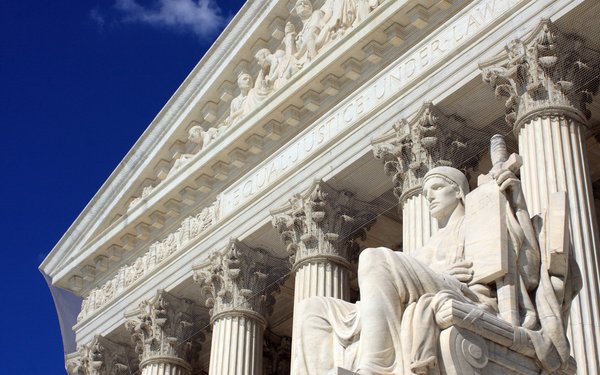
The Supreme Court won't hear an appeal by two
entrepreneurs who sought to invalidate Google's trademark on the grounds that people now use the company's name as a verb.
The court didn't give a reason for its decision, issued Monday. The
move lets stand a ruling of the 9th Circuit Court of Appeals, which upheld Google's trademark against a challenge.
The battle over the name dates to 2012, when David Elliott and and Chris
Gillespie asked a federal judge to invalidate Google's trademark. In March of that year, they purchased 763 domain names that incorporated the word “google” in them, like googledisney.com
and googlegeorgeclooney.com.
Gillespie and Elliott argued that the word "Google" had become a "generic name" for "the act of an online search. U.S. District Court Judge Stephen McNamee in
Arizona ruled against them, stating that Google could serve as a trademark regardless of the public's use of the term.
The 9th Circuit recently upheld that ruling. "Verb use does not automatically constitute generic use," the judges
wrote. They added that some people who use the term as a verb may be referring to performing a search on Google's particular search engine.
Elliott and Gillespie then asked the Supreme Court
to decide whether a term that's used as a verb could still serve. "Resolution of these unsettled questions is critically important not just to Petitioners and to Google Inc. but also to the owners of
the Rollerblade, Xerox, Photoshop, TiVo, FedEx, and Facetime trademarks, among others which have been verbed," they wrote in a petition seeking review.
When Elliott and Gillespie first sued,
they said they purchased the domain names in order to further an online business that would "promote commerce, community, relationships, personal health, charity and more.”
They also
said the business venture would initially target the gay and lesbian community, but would later be broadened.
Google said in court papers that the domains initially took users to TGN.xxx,
which promoted sites called “The Gay Network.” The top level domain of “.xxx” indicates the sites would be pornographic. The domains later took users to landing pages populated
with pay-per-click ads, according to Google.